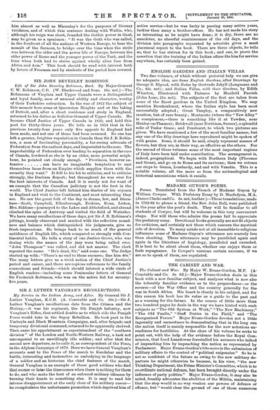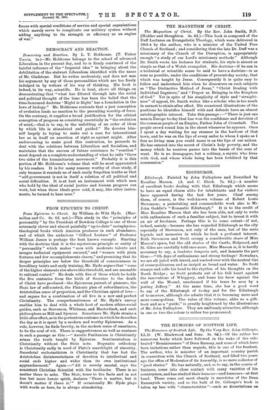The Cabinet and War. By Major W. Evans-Gordon, M.P. (A.•
Constable and Co. 3s. 6d.)—Major Evans-Gordon deals in this book with a now familiar subject, and analyses what is now also the tolerably familiar evidence as to the preparedness—or the reverse—of the War Office and the country generally for the war in South Africa. His heart is clearly in his subject, and for this reason his book has its value as a guide to the past and as a warning for the future. In the course of little more than two hundred pages he deals in the way we have hinted with such subjects as " The Old System at Work," "The New Machinery," "The Old Faults," "Staff Duties in the Field," and "The Reorganised Forces." Major Evans-Gordon devotes not a little ingenuity and earnestness to demonstrating that in the long run the nation itself is mainly responsible for the now notorious un- readiness for hostilities. At the close of his volume he seeks to point out, with the help of the evidence before the Royal Com- mission, that Lord Lansdowne forestalled his accusers who talked of impeaching him by impeaching the nation as represented by Parliament. Major Evans-Gordon's Me-noire is the submission of military affairs to the control of "political exigencies." So he is not so confident of the future as owing to the new military de- parture he might otherwise be because, in his view, " the new Thinking Department, the Prime Minister's Committee, which is to co-ordinate national defence, has been brought directly under the influence of party politics." Major Evans-Gordon, it may also be noted, frankly advocates the abolition of the Militia, maintaining that the step would in no way weaken our powers of defence or offence, but " would clear the ground of one of those numerous
adding anything to its strength or efficiency as an engine of war." Duff Lectures on Evangelistic Theology, which were delivered in DEMOCRACY AND REACTION.























































 Previous page
Previous page